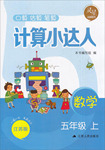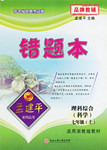
C
Still want a laptop? That was so yesterday. Get ready for the next stage in the personal computer revolution: It's the ultrathin (超薄的), cheap netbook.
According to a New York Times report last week, personal computers are about to go through their biggest change since the rise of the laptop. By the end of the year, consumers are likely to see laptops the size of thin paperback books that can run all day on a single charge and are equipped with touch screens or slide-out keyboards. The netbook is a kind of portable computer with learner functions for online surfing and basic computing activities, for example, word processing. To cut the cost and weight, they usually have a low-powered processor, small screen, narrow keyboard, and no ODD.
Currently, some of the devices look more like a toy than a full-feature computer. That's because most of the netbooks sold today run on an Intel chip called Atom. This is a lower-power version of the company's standard laptop chip, so they have trouble running demanding software like games and photo-editing programs.
This year, a group of companies who make cheap, power-saving chips used in cell phones are applying that expert skill to PCs. That means they will break Atom's netbook dominance (统治地位) and reduce the size while letting it run complicated programs.
The big winner in the rise of netbooks will be the consumer. AT&T announced last week that customers in Atlanta, Georgia, US, could get a netbook for just $50 (342 yuan) if they signed up for an Internet service plan. This trend will soon spread to Asia, according to industry experts.
University campuses are a major target of Shanzhai netbooks—uncopyrighted (无版权的) domestic copies of foreign brands. These products are usually sold at less than 2,000 yuan. But industry insiders suggest students not use these nameless products because many of them don't provide good after-safes services.
49.The following are all advantages of netbooks EXCEPT that .
A.people can easily edit photographs with them
B.they cost less than other personal computers
C.they are very thin and easy to carry
D.they save power
50.Why are students advised not to use Shanzhai netbooks?
A.Because they are of poor quality.
B.Because they are not easy to operate.
C.Because they will soon be out of date.
D.Because they lack good after-sales services.
51.What can be inferred from the passage?
A.Laptops are becoming more and more popular.
B.University students seldom buy Shanzhai netbooks.
C.Shanzhai netbooks are sold better than those of famous foreign brands.
D.Atom's netbooks make up the largest part of the sales of portable computers at present.
52.What is the general idea of this passage?
A.Shanzhai netbooks are taking control of laptop market.
B.Netbooks have advantages over laptops in everything.
C.Netbooks are becoming the trend of personal computers.
D.Most of the netbooks sold today run on an Intel chip called Atom.
 灵星计算小达人系列答案
灵星计算小达人系列答案 孟建平错题本系列答案
孟建平错题本系列答案科目:高中英语 来源:河北省邢台一中2011-2012学年高二下学期第四次月考英语试题 题型:050
| |||||||||||||||||||||||||||||||||||||||||||||||||||||||||||
查看答案和解析>>
科目:高中英语 来源:河北省邢台一中2011-2012学年高二下学期第四次月考英语试题 题型:054
| |||||||||||||||||||||||||||||||||||||||||||||||||||||||||||||||||||||||||||||||||||||||||||||||||||||||||||||||||||||||||||||||||||||||||||||||||||||||||||||||||||||||||||||||||||||||||||||||||||||||||||||||||||||||||||||||||||||||||||||||||||||||||||||||||||||||||||||||||||||||||||
查看答案和解析>>
湖北省互联网违法和不良信息举报平台 | 网上有害信息举报专区 | 电信诈骗举报专区 | 涉历史虚无主义有害信息举报专区 | 涉企侵权举报专区
违法和不良信息举报电话:027-86699610 举报邮箱:58377363@163.com